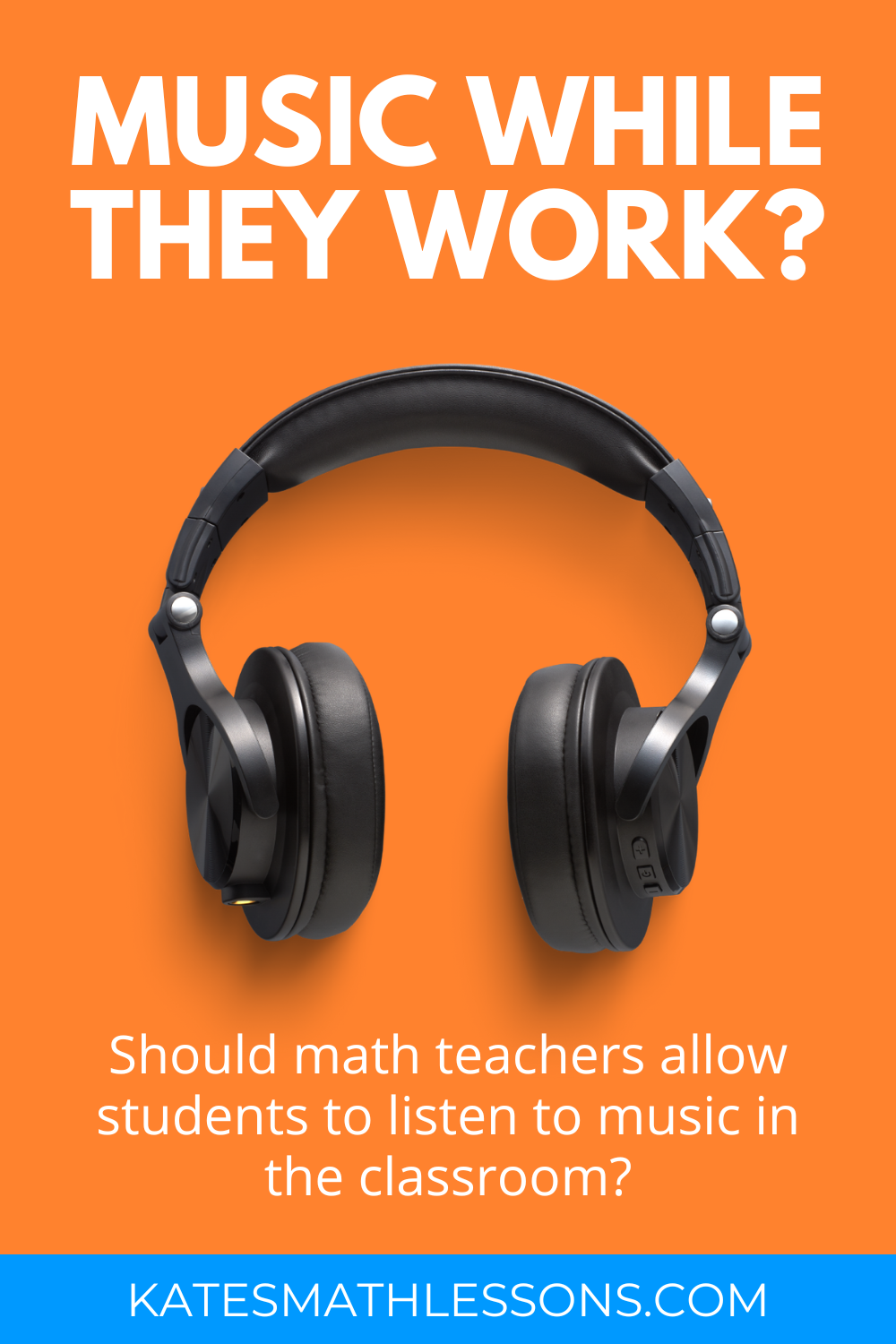I've never been one to work well in silence. In college, I quit going to the library to study because it was too quiet and I had a hard time concentrating. I found it much easier to do homework while listening to music in my dorm room or while watching endless episodes of Law and Order. So what's the big deal about listening to music in the classroom? Does it really make a difference? I came across a blog post the other day that was very much AGAINST allowing students to listen to music. The author had some interesting arguments, ones I had never considered before and it made me start to rethink the issue.
Here's just a sample of reasons from teachers who were FOR allowing students to listen to music while they work:
- Allows students to tune out classmates (or hallway noise) and focus on work - It relaxes students and puts them in a better mood - It lessens anxiety - Students can be rewarded for good behavior by allowing them to listen to music at end of class - Style of music can be changed to relax students or energize them depending on task - Students are less likely to talk or act out if listening to music - Some students find it harder to work when it's quiet And here are some of the reasons from teachers who were AGAINST allowing students to listen to music: - No music allows for more conversations about math (and learning to communicate with others in general) - Students spend too much time choosing their songs, volume levels are often distracting - State testing does not allow music and teachers want students to learn to work without it - Students are always "plugged in" and need a break from constant stimulation - Some schools do not allow it - Music distracts students and they accomplish more without it - Students often choose music that is not school appropriate or not a style that the teacher enjoys - Students distract others by singing along or dancing So who is right? Is there a right answer? What do the experts say? The answer is complicated. And let's face it, music is controversial. Just remember what happened at the MTV Video Awards with Taylor Swift and Kanye West if you think everyone agrees on which song is best. I am certainly not an expert on the topic, but it seems that the research has shown ambiguous evidence. There have been numerous studies and a wide variety of results. You've probably heard of the "Mozart effect," the idea that listening to Mozart’s music can increase your IQ. But did you know that a similar study was performed using rock music and the children who’d just listened to rock music performed better than kids who’d just listened to Mozart? Some studies suggest that changes in performance actually have more to do with positive changes in our mood, and not the music itself. We may find that we work better with a certain style of music, but it might just be that it's because we're happier and feel less stressed while we're listening to our favorite song. Some studies also suggest that for someone who is accustomed to listening to music while they work, there's actually a psychological withdrawal when the music is taken away. But what about the studies that have shown the hazards of multitasking? It seems that most experts agree that multitasking doesn't actually work, but does listening to music count as multitasking? According to Stanford Professor Clifford Nass, "In the case of music, it's a little different. We have a special part of our brain for music, so we can listen to music while we do other things." A new study showed that multitasking negatively impacts studying but listening to music had little effect. It seems that the debate is still out on whether it makes a difference if it's a song with lyrics or not, if it's a song you're familiar with already or not, etc. Part of the problem that I see with many of the studies is that they compared tasks done in silence with tasks done with music. Even if teachers don't allow students to listen to music while they work, they're most likely not working in total quiet. I'd love to see more research done in actual classrooms with the distractions that remain from the hallway, intercom announcements, other students in the classroom, etc. It's important to remember that many of these studies were done with individual participants, not in busy classrooms filled with students. So whether you decide to allow music in your classroom or not, I think it's important to remember that not even all of the experts agree on the topic. Music itself is controversial, we are not all going to agree on which style or artist is the best. Before we declare which option is best, we need to remember that our students have individual preferences and learning styles so there may not be a "one size fits all" solution. There are fair arguments for and against allowing students to listen to music in the classroom. I'm not convinced there's one right answer in this case. What do you think? Let me know in the comments below! Interesting Articles for Further Reading: Should You Let Students Listen to Music in the Classroom? The Mozart effect: The truth behind the claims What Multitasking Does To Our Brain Is It Good to Listen to Music while Studying? Does Listening to Music Really Help You Study?
1 Comment
Melanie
10/19/2022 12:51:27 am
When I first started teaching math, I picked the music to play and it had no lyrics—usually instrumental only. However, during Covid (2020-2021 school year ) we were online and I didn’t monitor this at all. When we came back to the classroom in 2021-2022 school year, I didn’t play music nor did I let them play music during tests because it would not be allowed during state testing. So, I didn’t want them to get used to music during any testing situations. During class time I wanted them to work together. So, there was no music then either. I can see where it is complicated. Take care.
Reply
Leave a Reply. |


